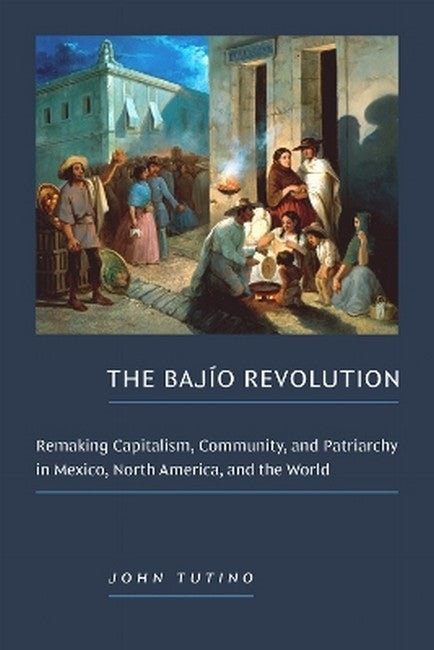John Tutino is Professor of History at Georgetown University, author Making a New World: Founding Capitalism in the Bajio and Spanish North America, and editor of New Countries: Capitalism, Revolutions, and Nations in the Americas, 1750-1870, both also published by Duke University Press.
Request Academic Copy
Please copy the ISBN for submitting review copy form
Description
List of Illustrations xi Prologue. Between Silver and Maize: New Spain and Mexico in the New World, 1550-1850 xiii Introduction. The Revolution(s) That Remade Global Capitalism 1 Part I. Making Silver Capitalism, 1500-1810 1. A New World in the Bajio: Silver, Capitalism, and Patriarchy, 1550-1760 23 2. Shaking the New World: Global Wars, Capitalist Predations, and Imperial Crises, 1760-1810 46 Part II. Breaking Silver Capitalism, 1810-1820 3. The Hidalgo Revolt: Four Months That Shook New Spain 75 4. Insurgent Guanajuato: Claiming Maize, Making Community, Breaking Silver Capitalism, Rattling Patriarchy 103 5. Counterinsurgency Capitalism in Queretaro: Production, Patriarchy, and the End of Profit at La Griega 135 6. New Spain in Times of Revolution: Arming Power, Defending Property, Conceding Family Production 156 Part III. Seeking Mexico, 1820-1830 7. As the World Turned: Imperial Dreams, Capital Failures, National Challenges 181 8. Independent Guanajuato: Strong Communities, Strong Women, Independent Cultures 210 9. Queretaro After Insurgency: Agrarian Capitalism Falls, Families Rule Maize 236 10. Mexico in the Wake of Revolution: Oligarchs Fall, Women Press On, Families Make Maize, and More 272 Part IV. Making Silver-Industrial Capitalism, 1830-1860 11. A New Bajio: Silver Revives, Industry Rises, Landlords Struggle-and Family Growers Carry Everything 295 12. A New Capitalism: Silver Peaks, Industry Expands, Rancheros Thrive-and Family Growers Feed Everyone 324 Conclusion. Breaking the New Bajio: US Imperialism, Liberal Intrusions, French Invasion-and a Cross of Gold, 1845-1880 363 Epilogue. Mexico Since 1875: Silver Gone, Families Carry On-Until Globalizing Capital Claimed Maize 385 Acknowledgments 399 Appendix A. Queretaro Population, 1778-1860 407 Appendix B. Guanajuato Silver and Mining Population, 1810-1870 411 Appendix C. Production and Population at Queretaro, 1840-1855 421 Appendix D. Production and Work at Queretaro, 1840-1855 433 Appendix E. Mexican Population, Production, Trade, Revenue, and Debt, ca. 1861 445 Appendix F. Population and Production in Guanajuato, 1855-1876 453 Appendix G. The Bajio in Mexico, 1876-1895 461 Notes 465 Bibliography 509 Index
"Culminating a distinguished career of research focused on the colonial economies of silver mining, artisanal manufactures, livestock ranching, and food production in Mexico's western provinces, John Tutino interprets the revolutionary impacts of popular insurrections in the Bajio that reverberated throughout North America, Europe, and the world. Arguing that rural uprisings seeking basic sustenance shattered the silver economy of the Bajio that had sustained early modern global capitalism, Tutino connects local ranching economies to the rise of nineteenth-century industrial capitalism and enslaved plantation labor that shaped a new world order." - Cynthia Radding, Gussenhoven Distinguished Professor Emerita, University of North Carolina, Chapel Hill "I marvel at John Tutino's ability to reveal a world long past and the granular view he offers readers of a society in the midst of revolution. By shifting perspectives between peasant agriculturalists and local and state elites, Tutino widened my understanding of the period and made me rethink the broader context in which the events that unfolded need to be understood. The Bajio Revolution should be of interest to anyone studying North America and Atlantic in the nineteenth century. Tutino reminds us of what excellent social-historical scholarship can achieve." - Steven Hahn, author of Illiberal America: A History

